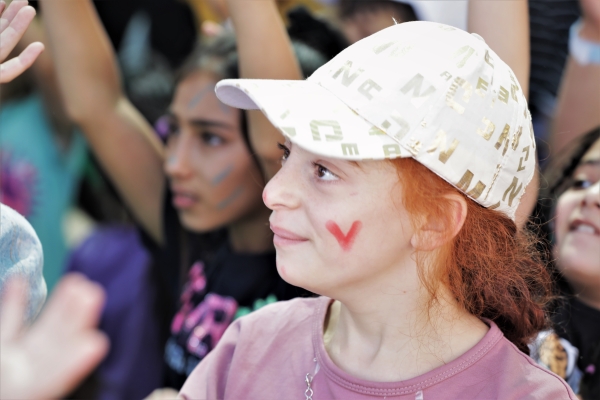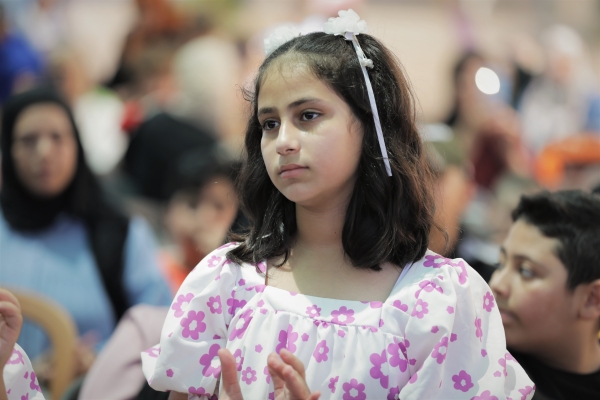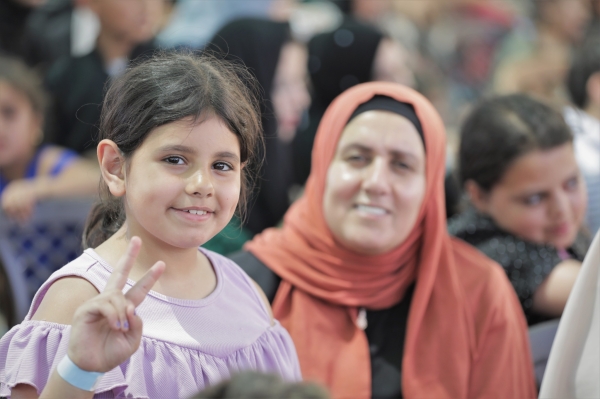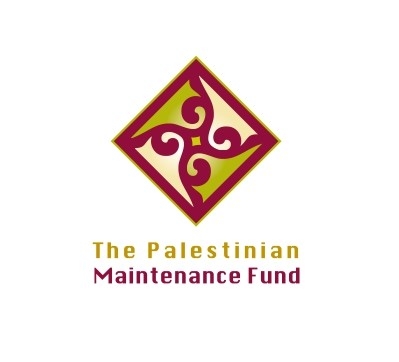Voices

“I’m the girl whose father doesn’t know her.”
“I’m the girl whose father doesn’t know her.” That’s how Shatha introduced herself to a lawyer at the Palestinian Maintenance Fund when asked her name — as if she meant to rebuke the father who fled from the responsibilities of his family. She was born shortly before her father unexpectedly divorced her mother and abandoned the family, choosing instead to remarry and live in Gaza. “In 2006, after I reached the West Bank through Egypt while I was six months pregnant with Shatha, I was shocked to receive the divorce papers,” says Um Luay, who now lives in a rented house near her family in Hebron. “He had promised to follow us, but instead he sent a divorce notice.” He left me with a daughter who has never seen his face, and two sons who were under the age of three. His family then forced me to give up my legal rights — the deferred dowry and any financial claims — in exchange for custody of my children. “They’re my weak spot,” she says. Before that, my ex-husband had already taken my gold jewelry for himself. More than once, I thought about sending the children to Gaza to live with their father. But I couldn’t go through with it. He’s remarried, and “I would die if my kids were taken away from me.” Life wouldn’t be easy for them there. Still, the hardship and economic pressure I face constantly bring the idea back into my mind. “At least I have my siblings — they support me, even with just kind words. One day my children will grow up, get an education, and make something of their lives.” She lives on the small monthly stipend she receives from the Maintenance Fund and social welfare support that comes every four months. “But the burdens keep growing... May God ease our struggles,” she concludes.

Tahani and Her Daughters... Under Threat
Tahani and Her Daughters... Under Threat After her husband sold their home and all the furniture, Tahani, a 33-year-old mother of three girls aged between 5 and 13, had no choice but to return to her father’s house in southern Hebron. Her husband had decided early on to abandon his responsibilities toward his family, leaving them without even the basic necessities for a decent life. What made the situation even more terrifying were the threats from creditors — some even went as far as threatening to kidnap her daughters if her husband failed to repay his debts. Tahani has made many attempts, and continues to try, to convince her husband to fulfill his duties as a father and provider — but to no avail. Her family remains vulnerable, constantly under threat, and burdened by financial desperation. The alternative — divorce — carries a heavy social stigma that Tahani feels unprepared to face or endure. Despite the support she receives from the Palestinian Maintenance Fund, their needs far exceed the available assistance. With the fund's limited resources, this struggling family finds itself appealing to kind-hearted people for help.

They Even Falsified My Age
“My official age is 47, but my real age is 42. May God forgive him — my father forged my birth certificate to marry me off to a man 18 years older than me when I was only 13,” says Itaf, a mother of ten daughters, five sons, and the caregiver of two of her grandchildren. “I haven’t seen him in over nine years. As long as he stays away from me, I’m at peace. May God never forgive him — the abuse I suffered was terrifying,” she says, describing her husband’s absence and the torment he inflicted before abandoning the family. He used to marry off his daughters just to get money, and if he didn’t get what he wanted, he would force them into divorce. The groom’s character, education, number of wives, or age gap didn’t matter — all that mattered to him was the money, Itaf explains. Today, Itaf, her children, and grandchildren live in a place that resembles anything but a home — barely furnished, infested with mold and decay that causes illness among the children. Even the bare minimum of shelter was denied to her by her husband's family, who have set fire to the house and broken its windows on more than one occasion. Her husband chose to escape all responsibility and live in Jordan, leaving behind a trail of suffering for a destitute family that struggles to meet even the most basic needs. Their only source of income is the modest support they receive from the Palestinian Maintenance Fund — and it is far from enough. The family is large, and their suffering immense — hunger, illness, and even the absence of basic health insurance define their daily reality.

"My husband said: I no longer mattered when I got sick... My uncle was the reason — may God forgive him.
“When I got sick, he told me I didn’t matter to him anymore. He left me. May God forgive my uncle—he’s the reason it all happened,” says Naila, who was married before turning sixteen. She spent just one year in her husband’s house before he abandoned her. Naila, who lives in a small village northwest of Jerusalem, now stays in a modest home near her ex-husband’s family. The house belongs to the family of a friend who, out of compassion for Naila’s difficult circumstances, has waived the rent. Naila manages to cover the household expenses with limited support from the Ministry of Social Development and the Palestinian Maintenance Fund. Naila—who prefers to be called Laila—shares how her story began with a forced marriage arranged by her family, despite her objections. It was her uncle who insisted on the marriage, wanting to repeat what he considered a "successful" experience with her older sister. "He said I had reached an age where no one would want to marry me," she recalls. Her father played no role in the decision. A year into her marriage, Laila’s health began to deteriorate. “I started treatment, but each doctor prescribed a different medication, which eventually damaged my kidneys.” She was told she needed a kidney transplant, and thanks to her brother, who selflessly donated his kidney, she was given a second chance at life. But at the very start of her illness, her husband abandoned her. Amid her own health crisis and her mother’s illness, Laila was left to raise her daughter alone. The little girl no longer recognizes her father and even screams when she hears his name. She recently asked her schoolteacher not to call her by her father’s last name and removed it from her backpack. When her ex-husband would request to see their daughter, claiming he missed her, Laila later discovered that he would leave the child with another family—who eventually called her to pick up the girl after he failed to return. He even attempted to abduct the child once, but the police intervened and returned the daughter to her mother. Now living under immense economic and medical hardship, Laila explains: “For two years now, I’ve had to eat a special diet and drink purified water so I don’t risk a kidney infection. After the transplant, I avoided meeting people out of fear of catching anything. Even my medication is not always available at government clinics. I usually get it from a kind family I met at the dialysis center—but even they can’t always help.” To cope with her financial struggles, Laila dreams of learning a trade. “I’ve always wanted to take a beauty course. I love doing makeup and cutting hair. Sometimes I do it for friends, and they tell me I’m really good,” she says, her voice filled with hope for a skill that could help her meet her family’s daily needs.

Samira: “I have no purpose in life, and the choice isn’t mine.”
“I have no purpose in life, and the choice isn’t mine. I used to care for three daughters—now I’m responsible for no one.” With these painful words, 27-year-old Samira from Hebron described her current life. She now lives with her family after a marital dispute, and is one of many women who have turned to the Palestinian Maintenance Fund seeking their right to financial support. Her suffering began two years ago when her husband started physically abusing her and forcing her out of their home to her family’s house. “He swore that if I ever came back, he’d divorce me—and I never went back,” she says. What escalated the situation was a conflict between her husband and his father, who wanted to sell the family home and move to the Old City—something her husband refused. Caught in the crossfire, Samira and her daughters paid the price. For seven months, Samira was separated from her daughters. Eventually, her husband brought them to stay with her for just two days, then took them away again. Her husband later married another woman, only to divorce her 20 days later. Meanwhile, Samira, who filed a “discord and dispute” claim (شِقاق ونزاع), neither wanted a divorce nor for her husband to be imprisoned. Her husband had married again in an attempt to pressure her to return, while Samira filed her case not out of anger, but out of desperation. Today, she finds herself caught between two impossible choices—neither of which she has the power to make: Her family will only allow her to raise her daughters if she gets divorced (something she does not want). Her husband will only allow her to live with her daughters if she returns to the marital home (something her family strictly forbids). In this legal and emotional deadlock, Samira is left with no voice, no power—and no choice.

"In the End, It Was All Just Empty Words"
“I married him without truly agreeing—he already had a wife and children, but my family convinced me. He promised he’d do anything I wanted, buy me anything I asked for… but in the end, it was all just talk. He constantly blamed me for everything. He never respected me. Every day was a fight.” That’s how Suheir, a 40-year-old woman from a village near Ramallah, describes her marriage—a relationship that recently ended when she filed for divorce, unable to continue living with a man who regularly drank and never treated her with dignity. Despite her husband’s attempts to smear her reputation by claiming she wanted the divorce because she was in love with someone else, Suheir says: “What matters most to me is getting him out of my life—permanently.” Living with hearing and vision impairments, Suheir had to sell her own bracelet just to afford a hearing aid. She now lives in a single room in her parents’ home with her children, where privacy and independence are difficult. “I just wish I had a house of my own to raise my children in peace—away from my parents’ constant interference. At first, my father refused to let me stay at their home and demanded I go back to my husband. It wasn’t until my brother stepped in, understood the abuse I had endured, and helped me appoint a lawyer to claim my rights, that I began to feel some relief.” Although her ex-husband is financially well-off and recently remarried, he has cut off all contact with Suheir and their children. She says the most painful part is watching their youngest daughter—who was especially attached to him—struggle with abandonment. “She couldn’t believe her father had left and stopped asking about her. She cried so much that it damaged her eyes. We still haven’t been able to get her the treatment she needs.”

“My Son Calls My Brother-in-Law ‘Dad’”
Rawan, 32 years old – North of Hebron “This house is not my home. I live in my father’s house, sleeping in the same room with my sisters. My sister, a schoolteacher, says things like: ‘Your son has no roots, no identity.’ I stay silent. I watch my sisters carry their children, and I break down in tears—while my son calls my brother-in-law ‘dad,’ even though he doesn’t treat him like his own.” With trembling voice and tears constantly interrupting her words, Rawan, a young mother from the north of Hebron, tries to describe her life. And even when words fail her, the pain speaks clearly. Her first marriage lasted three years—without children despite medical attempts. Her husband’s obsessive jealousy and abusive behavior turned her life into a nightmare. In exchange for her freedom, she gave up all her rights—just to escape. “I thanked God that I didn’t have a child with him,” she says. But her second marriage was no refuge. Her husband, who already had a wife and four daughters in Jordan, began pressuring her to terminate the pregnancy as soon as he learned she was expecting. He feared the baby might be another girl. Rawan refused. “He brought me pills to end the pregnancy, but I secretly took medicine to keep my child safe.” He abandoned her, traveling back to Jordan and sending her to live with her family in Palestine, promising to return after the birth. But the promise was never kept. When their baby turned four months old, Rawan, desperate for support, traveled with her brother to Jordan. There, she found her husband embroiled in conflict with his first wife, who had left him and the home. Her return brought no comfort. “The situation was humiliating—there was violence, neglect, and emotional abuse.” She returned home again, with no contact from him for almost a year. When her child, now over a year old, finally began to form his first words, she tried to reconnect the father with his son—hoping hearing his voice would soften his heart. The call lasted only a few minutes. It was never repeated. Today, with her son nearing age three, Rawan remains legally married—not out of love, but out of mercy for her child. “I just want my son to say ‘baba’ and know who his father is. I don’t want him to grow up feeling abandoned. I never imagined I’d have a child without a father.”

"It Was the Saddest Eid – My Children Left Their Father’s House with Broken Spirits"
“My life with my husband was miserable from the start, but I tried to give it a chance. Things never got better. It wasn’t him, really—it was his mother. She constantly interfered, and eventually, she started hitting me... I endured it all. But when he started neglecting our children—no food, no medical care—and even asked my brother to provide for our household’s basic needs, I had no choice but to leave.” This is just a glimpse into the suffering of Nawal, a 36-year-old woman from Hebron. She now lives in her married brother’s crowded home, a father of four, having escaped years of abuse, humiliation, and hunger. Her only refuge was her family’s home. “Eid is supposed to be a time of joy, especially for children. But that year, it wasn’t for us. It was the day I left my husband’s house. I had left my family home as a bride, and I returned with three children—and one unborn.” “It was the saddest Eid. My children left their father’s home with broken spirits,” Nawal says. Now, after more than two years, her children no longer recognize their paternal family—they identify only with their mother’s side. Some even believe their uncle is their father. This deeply worries Nawal, who says she is not against returning to her husband—but never to his family’s home. “A woman belongs in her own home, with her husband,” she says. When asked why she filed for maintenance, she responds: “To take what’s rightfully mine and my children’s—to make him realize that children are not toys, and neither is his wife. I am the daughter of a dignified family.” Although she is grateful for her family’s support, Nawal emphasizes the hardship of living in a shared household: “Everything is shared—space, meals, decisions about how and when to feed my kids—I am not the queen of this home. I wait for the day this burden is lifted and I return to my own house. What worries me most is what future awaits my daughters if they continue growing up in a household with their cousins as siblings.”

"He Tricked Me with His Charm… So I Left Him"
“I didn’t marry young. I lived with my four sisters, my brother, and our mother. My father left for Brazil when we were still kids—and never came back. My mother raised us alone, and I stayed by her side until she passed away. I refused to marry just to stay with her.” This is Amina, a 56-year-old mother from a village near Ramallah, who has been divorced for seven years. Before her marriage, Amina served in one of the security forces. In 1997, she met a man who seemed kind and trustworthy, and they got married. But within just one month, her husband demanded she leave her job—his first act of control. It was only the beginning of a long path of disappointment and deceit. “My ex-husband had already been married before me, and today he’s with a third wife and has four children with her. He lives nearby and is regularly pursued by the police for fraud and scams—and his current wife is involved too.” “I didn’t ask for anything when we got married,” Amina continues. “I built our home from my savings. I even sold my jewelry for it. But his dishonest behavior—lying, scamming, stealing—is what ultimately made me leave him. People ask why I left since he wasn’t abusive, but to me, fraud and dishonesty are serious forms of abuse. I was raised on honesty and integrity.” For the sake of her son, Amina even moved from Ramallah to a nearby village. She never denied him access to his father, and would even send money for the child to take with him. “Then I found out his father was taking the money from him and sending him back without even covering his bus fare,” she says. Today, Amina supports her household with payments from the Palestinian Maintenance Fund and by taking on small jobs whenever possible. But her income is unstable, and she never completed her formal education. “I’ve tried for more than ten years to return to my previous job in the security forces—but every door has remained closed.”

Salima: “I came to spend Eid with my family... and ended up divorced.”
"I only lived with him for a year and four months. Then I returned to Palestine. I couldn’t travel back to Jordan, and he couldn’t come to Palestine. After that, I never heard from him again. Since 2002, I’ve been living in Palestine. My eldest daughter was only six months old, and I was pregnant with my youngest. From that day until today, I haven’t seen my husband—not even a phone call, not even from his family." Salima, now 35, came from Syria to marry her cousin and live with his family in Jordan. Today, she resides in an old, unhealthy home in a village near Ramallah, which she says has caused her and her daughters many health problems. She had traveled to Palestine with her child to spend Eid with her family and renew her passport. But the Israeli incursion into Ramallah at that time caused her to lose the document. By the time she was able to issue a new one, she was due to give birth and had to stay. Her husband insisted that she return to Jordan without the baby, as the child had no travel documents. When she refused, he disappeared—never to be heard from again. "My brothers searched for him in Jordan but found nothing. Eventually, we were told he was missing. When all hope was lost, I was divorced in absentia—just so I could be eligible for some financial support to raise my daughters," Salima explains. Salima now relies on the maintenance payments she receives from the Palestinian Maintenance Fund, as well as social welfare and charitable assistance. She adds: "I live off what I receive from the Fund. The people of the village are kind; even shopkeepers I owe money to don’t demand payment out of sympathy. My sister treats my daughters as her own—without her, I wouldn’t survive."

Left Alone and Abandoned: The Stories of Nawal, Amneh, and Fatima
Nawal, Amneh, and Fatima—three women whose husbands all fled to America, leaving them behind. For these women, marriage to these men initially seemed a gain, as the lure of moving to America was irresistible. Nawal married a man who had recently come from America when she was 32 years old. He came seeking a wife—and she was chosen. They lived together for only one month before he returned to the U.S. About that month, Nawal recalls: “At first, we rented a house because he was supposed to prepare our papers and arrange for us to travel. But during that month, strange things happened. I started hearing stories about his scams and troubles. He was even imprisoned and released on bail. When he left, I was pregnant.” Later, he was arrested in America for attempting to enter illegally and sentenced to four years in prison. Since 2005, Nawal has lost all contact with him. His father sent her $200 during his absence, but other than that, her only support came from the Maintenance Fund and social services. Amneh lived with her husband—the one who fled to America—only for three months when she was 28. After a year and a half of marriage, he returned to his first wife before leaving the country for America, without informing Amneh. He left behind a daughter, now eight years old, who does not even know what her father looks like. Amneh was kicked out of the house by her husband’s children from his first marriage, who abandoned her and their brother. Today, she lives in her father’s two-room home: one room for her father and his wife, and the other for Amneh, her daughter, and her brother. She supports herself and her child through assistance from the Maintenance Fund, while her family’s financial situation remains very difficult. Fatima’s story, 35 years old from a Jerusalem refugee camp, is similar to others, with some differences. Her engagement and marriage happened in less than a month: a financially capable man, with an apartment almost ready, and holding American citizenship. They agreed she would stay at his family home for a month or two until her paperwork and travel plans were arranged. However, the period stretched, and she soon discovered his reluctance to have her join him. With the help of specialists and family friends, she finally managed to travel and reunite with him. Fatima’s stay was short-lived. Her father-in-law came for medical treatment, planning to stay one or two months but ended up staying two years. This forced Fatima and her husband to return with their two children after he was persuaded to start a business in his homeland. However, he stayed only three months before leaving, and later she learned he canceled her citizenship application to prevent her return. “After staying at his family’s house, I left following an incident where his mother physically assaulted me,” Fatima recalls. When she informed her husband and said it was unsafe to stay at her family’s house due to construction and the child’s safety, he told her to leave the child with his family and stay with hers. When she refused, he changed his phone number, cutting off contact. Fatima stayed in her father’s home for three years before finally obtaining a divorce in 2011. The Palestinian Maintenance Fund, to which Fatima applied for child support and abandonment assistance, was a crucial aid for meeting her needs and those of her children amid her husband’s evasion of financial responsibility.

Wafaa: “If you want to know how we’re doing—run blood tests on our children!”
"If you test my children’s blood, you’ll understand the pain, the illnesses, the unmet needs. When my children manage to have lunch, I thank God a hundred times. But there’s usually no dinner. They ask for things far beyond my means. I just wish someone in charge would read my story—take my son and daughter, assess their needs, check the shoes on their feet. My son’s shoes come from garbage piles, and on Eid, if we get a donation, we buy something. Even their clothes come from street vendors." Wafaa, a 40-year-old divorced mother of three from Hebron, was abandoned by her husband, who fled to Jordan to escape his financial obligations—and married another woman. She shares her distressing reality: “Just two days ago, I cooked the last lentils I received from the food voucher—five kilograms. It’s summer, no one eats lentils now. Is there anyone who doesn’t buy meat at least once a month? I have two brothers, two sisters, aunts, and uncles—if each gave me 50 shekels a month, I wouldn’t need to beg anyone. But instead, they say ‘Let God deal with her’.” Despite it all, Wafaa remains grateful—but not because she chose this life. “This isn’t the life I wanted. But I have no choice. I’m both mother and father to my children. I wish I could live like other dignified women. But that wasn’t written for me.” She does not regret filing for divorce. “I expected a decent marriage. But within a year, I found out he had a previous wife—and a history of fraud and debt. He claimed he went to Jordan for work, but he was really running from responsibility and marrying someone else. I was deceived.” Her voice trembling through tears, she concludes: “What I’m living now is better than living with him. A man who has no mercy on his own family can’t have mercy on anyone. He abandoned his children without support. They grew up without their father. My daughters became mothers before their time. Even when his own mother died, he didn’t come to her funeral. May God hold him accountable.”

“I am patient—and have been for a long time... but my children ask me why we don’t have a father like other families.”
Ahmed, a seven-year-old boy, dreams of buying a bulldozer when he grows up to crush his father’s head. Meanwhile, his mother wishes that her children never live through the same suffering she endured. Kholoud, 29 years old, from a village north of Hebron, was married at fifteen and gave birth to her first child at sixteen. As she grew older, so did the weight of her responsibilities. She and her children live in hardship and deprivation, haunted by fear of an uncertain and grim future. Between tears, Kholoud shares her story: “I lost my father when I was three. I always wear secondhand clothes. I have a complex—I don’t want my children to live what I lived. People tell them, ‘Your father abandoned you; you have no family.’ My daughters don’t even talk with the girls in their class. That’s why I want to transfer them to another school.” About her husband, she reveals: “I’ve been patient for a long time, but no one saw what I endured. I was afraid of him—he used to hit me. He even poured hot oil on me. My finger is still damaged to this day. The constant stress gave me kidney disease. He took my gold and tried to take the house my mother left me. May God forgive my uncle, he’s the reason. It got to the point that my husband married another woman in our home. I tried to talk to him—he has no sense of responsibility. I told him I’m ready for anything, just don’t marry another woman, but he refused.” Regarding her income, Kholoud says: “No one supports us. If his family had money, I wouldn’t have had to file for maintenance. I’m naturally content and grateful for anything. I’m from poverty—I wear and eat what people give me. My only income is from the Maintenance Fund, social services, and sometimes from kind people.” About the absence of her husband, who lives in Jordan and married another woman, Kholoud tearfully says: “My children have gotten used to it, but they ask me, ‘Why don’t we have a father like others?’ I feel my children are humiliated and incomplete. I feel they want something they don’t have.” Again about her income: “No one supports us. If his family had money, I wouldn’t have had to raise a maintenance claim. I’m content with whatever comes. I’m from poverty—I wear and eat from what people give me. My only income is from the Maintenance Fund, social services, and sometimes from kind-hearted people.”

“My Marriage Was a Grave—Its End Was a Celebration”
For Nihaya, the end of her marriage marked a new beginning—the moment she reclaimed her freedom, dignity, and right to self-determination. She describes it as a celebration, a turning point that allowed her to finally see herself with strength and self-respect. Married at 23, Nihaya endured two years of hardship, injustice, and emotional abuse. She lost a baby boy, gave birth to a daughter, and suffered treatment she describes as humiliating and degrading. “It wasn’t a life,” she says. “It was a grave.” Now 32 years old, a university graduate and a mother, Nihaya lives with her family in southern Hebron. Speaking with long pauses and silent emotion, she recalls how even her grief was policed—her former husband once forbade her from crying over her deceased son. Her mother-in-law forced her to work just one day after giving birth, resulting in severe bleeding and hospitalization. Living in Jordan at the time, she hid the reality of her life from her family, trying to maintain the image of a happy marriage. But the truth was painful—her husband took control of her salary, spending it entirely while giving her only 100 shekels. “He sold all my gold. Even the money my sister gave me—he took that too.” After being diagnosed with a cancerous tumor in her neck, her physical and emotional health collapsed. With no support from her husband, she returned to Palestine, where her father stepped in with love and care. Thanks to his support, she recovered—almost completely. Today, Nihaya works at the Ministry of Health and is pursuing her master's degree. She believes deeply in a full recovery—and in her right to live with dignity and respect.

Suad: “Maintenance Restored My Dignity—I Became the Queen of My Own Life”
"When the Maintenance Fund started disbursing payments for me, I felt like a queen—I had an identity, a sense of self. I didn’t care whether people thought I was poor or not. What mattered to me was that my children could live with dignity. I finally felt like a mother who could provide for her children.” This is how Suad, a 38-year-old mother of two from a village in southern Hebron, described her transformation during a field interview. Married to her cousin, Suad now lives in her parents’ home after returning from Jordan, where her husband resides. She had traveled to register her child but found herself caught in a family conflict over inheritance between her father and her husband—his nephew. What followed was abandonment, influenced by her husband’s sisters and fueled by his father’s stubbornness. “Being separated but not legally divorced limits the support I receive from others,” Suad said. “It’s like his name blocks any possible charity or assistance from reaching me or my children.” Suad feels the weight of injustice. “Raising children is not easy. My husband left everything on my shoulders. I’m under immense pressure. I handle it all—finances, care, discipline, education—while he remains completely uninvolved.” Living in her family’s home brings further challenges. “It’s not easy living in a crowded household. I dream of a home of our own, where I can raise my children in peace. My nephews mock my children, reminding them that their father abandoned them. Even when their father sends something, it becomes a source of shame, not comfort.” Suad fights back tears as she speaks of her children. “They feel the absence of their father. A strong father teaches his children responsibility. My son relies entirely on me. What kind of man will he become? When my daughter grows up and someone wants to marry her, what will he say? ‘Why did her father abandon her mother?’ I’m terrified of the future.” Despite the hardship, Suad has not filed for divorce, fearing societal stigma. “Divorced women are constantly judged. If I leave the house alone, people talk. That’s why I had to quit the job I used to have. It paid little, but it helped.” Still, Suad holds on—for her children, for their dignity, and for a sense of agency that she’s reclaiming slowly, with the help of the Palestinian Maintenance Fund. Through consistent support, Suad has found the strength not only to survive, but to stand tall.







